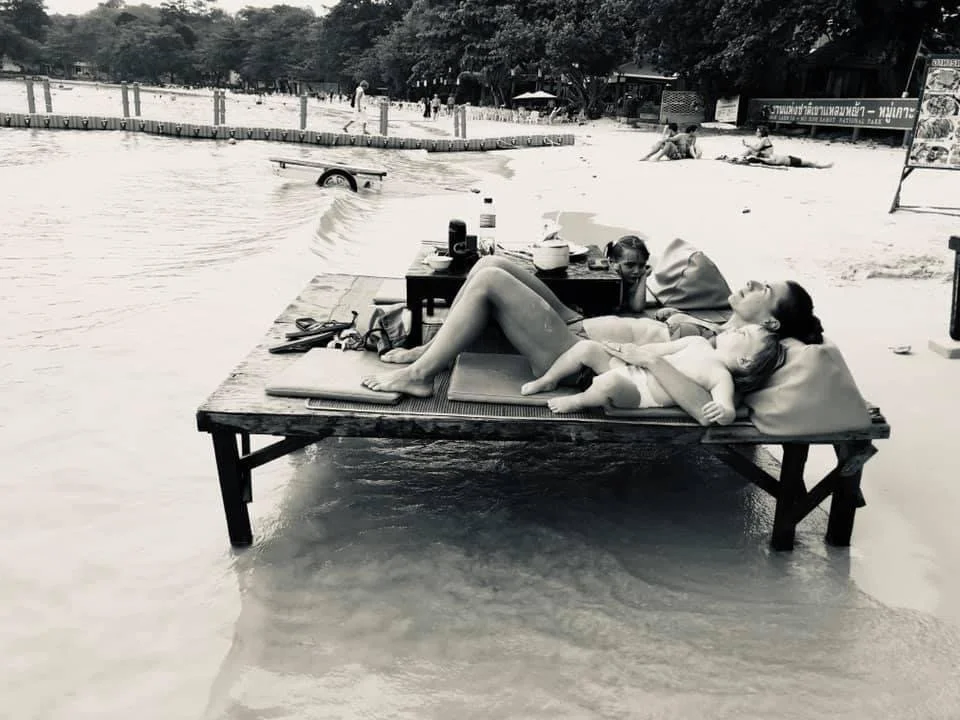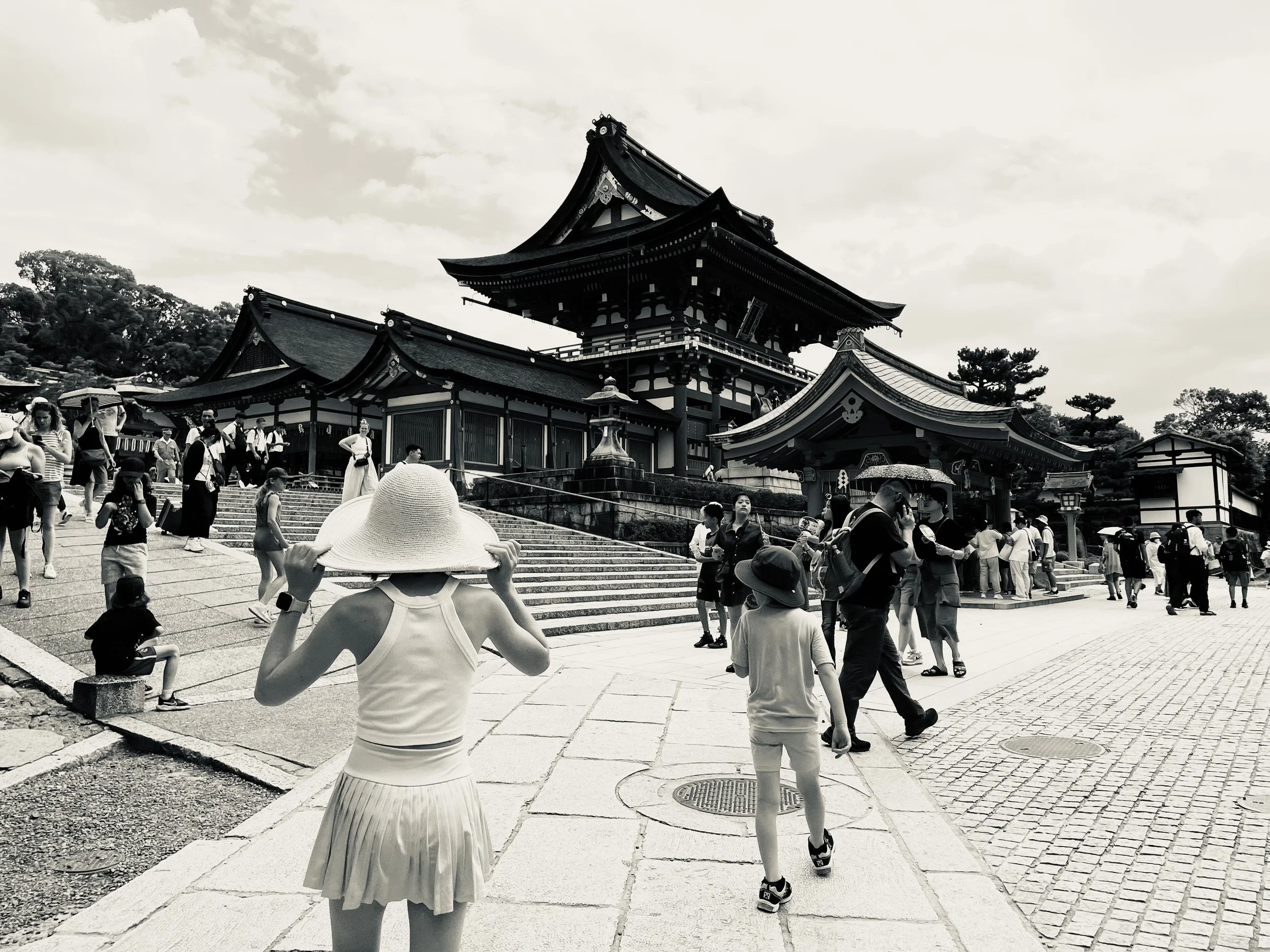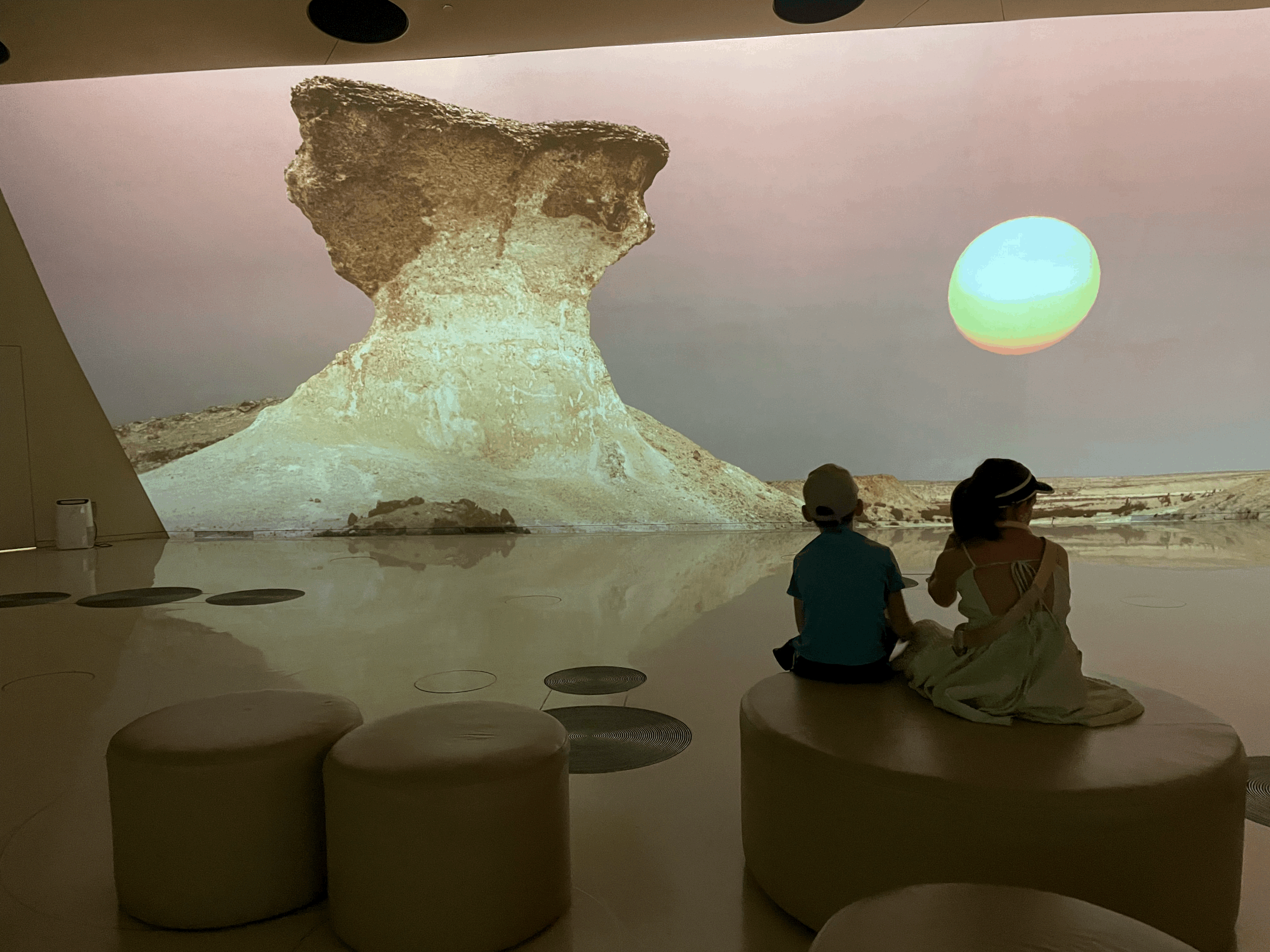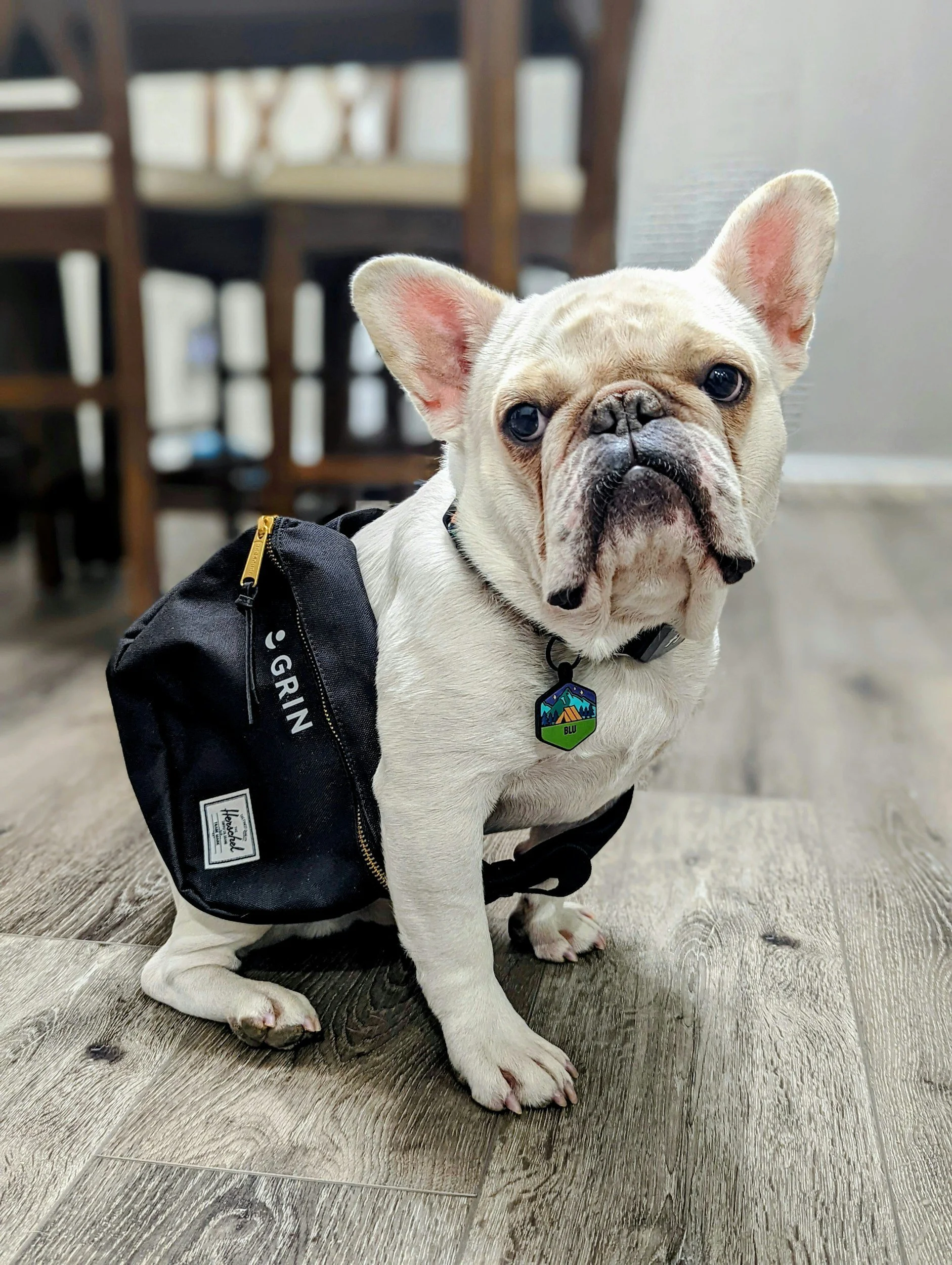
Traveling the world with children isn't just an adventure, it's an education. It teaches resilience, curiosity, and compassion in real time. From moon gazing in Thailand to majestic Japanese temples, every journey opens their eyes to new cultures, new ways of thinking, and the beauty of diversity.
World Travel with Kids
it is easier, more affordable and safer than you anticipate with the right research, planning and budgeting. Above all most certainly more fun and rewarding than you'd ever imagine. Let’s go!
Learn from our mistakes.
Free tips for planning, booking and the slow travel lifestyle.
Begin your adventures.
Initial Trip Planning
-

Where to?
Pick top 2-10 you’ve been daydreaming about. Or pull up maps online and cruise around. My favorite is Google Flights, search for dates close to your vacation dates and see what comes up on the Globe. And zoom into areas of interest. Lastly, join online travel groups (FB) to start learning about certain places of interest..
-

Can we afford it?
Do a quick search on: 1. flight or gas cost, 2. hotels/lodging, 3. food, 4. transportation. Calculate a range, make sure to add 10% for incidentals and see if the higher end would break the bank.. From experience, I’ve always end up spending right around the lower end.
-

How to get there
On Google flights set your departure city and look around in the general region you are interested in. Maybe one destination will spark another. Mallorca vs. Ibiza, Cyprus vs Istanbul. Best to browse with the “Multi City” button, as your departure city may change if you take local fights or trains. It is fast and easy to fly into Madrid from the USA, and you can always fly home from Vienna after making your way East in Europe.
-

Hotels
When I have a destination in mind, let’s say Valencia, Spain. First thing I like to do is get on an online hotel reservation website or app like Booking, Priceline or Hotels. By the number of hotels in certain areas you can guess where the city center is with main tourist attractions and sightseeing highlights. I personally set the filters to 8.8 stars or higher with at least 50+ reviews. After a few filters (in the Middle East I always reserve with pool) in a few minutes you can see the price range and determine if it’s suitable for your party..
-

Food
Search cost of meals at your destinations. Keep in mind that many hotels have “breakfast included” which may mean you only need 1-2 more meals. Some hotel breakfasts are enormous and you finish eating at 11am so you only need dinner. Make a cost bracket for low and high end.
When I travel with 2 children, we generally share 2 meals. Different countries have various eatery offerings. In Italy you can find “bars” with slices of pizza at reasonable prices vs. a sit down restaurant that will charge you for sitting down plus for opening a bottle of wine, plus for bringing you tap water to the table.
-

Transportation
A quick search transportation options of the area can give you a clear idea of the distances, where is it best to reserve your stay, what there is to do and how long does it take to get around, costs.. For Example in Valencia if you reserve in the city center, you don’t have to use any public transportation. Madrid is quite walkable also. In Abu Dhabi there is no metro, but the taxis are affordable and the bus system is phenomenal with air conditioned bus stops. For deeper search in AD, google “Taxi cost between Mandarin Oriental and Gold Souk (market)” for a precise idea of taxi.
Details / Tips & Tricks
Detailed Planning
-

Hotel Location
Before falling in love with a hotel, consider location as most important. This means above all to the places you would like to visit. Will you lounge on the beach or visit tourist sights? If you are staying for just one day, will you need to be close to the airport or train station? If you have an early flight, will you make it to the “breakfast included”? Above all, I always reserve with “free cancellation” option. Keep an open mind for boutique hotels vs. chains. A Hilton in Vienna may not be the best option vs a historical local chateau or revamp palace.
-

Amenities
Once you know what you can expect from the area, what is most important? For example reserving a hotel with a pool in Istanbul may not be imperative since you will likely be out viewing mosques and browse in the Grand Bazaar all day.. But perhaps breakfast served on the rooftop is a lovely perk and this could be found in budget hotels at ideal central locations even.
In the Middle East my top priority is to reserve the absolute best 5 star hotel because the price difference is so much, I will already be taking a chance on the children liking the food or not. And from experience the hotel breakfast is so epic, it is simply part of the travel experience (you pay considerable extra for the breakfast, but we found it worth it every time).
-

Reviews
I always look at 8.8 and above, with at least 40 reviews. I click “location, clean” as top, if I find consistency with “hair in the shower, bugs, dust under the bed” I stop looking at that accommodation completely and move on to the next one. Same motion for location, if it is consistently mentioned 2-3x “it is a bit far from everything, too many hills or stairs, just a few blocks away from everything” then you know you will have the same headaches. Your trip will already feel too short, may as well do your homework now and get excited about a place that you’ll love coming home too, and can’t wait to visit again. Our highlight on each trip is to build relationships with the staff and have heartfelt goodbyes even after a few days with promises of “hopefully see you next year”.
-

Consult your group
From experience it’s helped to have a sounding board of spouse/friends/family who can give tips and feedback. However do not let them scare you away from pursuing your dream vacation planning.
Keeping an organized record of your findings. If you find a great source, you can add the website into your notes. Additionally can make “to do” lists for things you need to keep researching.
Online groups such as on FB are also helpful and often I start following conversations months in advance of a trip or even years ahead.
-

Passport and Visa
Check if your destination requires a visa with your citizenship. Personally I have found that passport processing in the USA is quicker than the 4-6 weeks quoted online. Check if your passport is valid at the time of travel. Generally it needs to be renewed if it expires within 6 months of travel. If your destination calls for “Visa upon arrival” based on your citizenship then they charge you at arrival. Check what form of payment will be needed. If you are required to have a visa before your arrival, that could take months, as the consulate office may be in a different city, far from where you live (Houston, Washington DC, Los Angeles are common cities for consulates). You can generally apply online but you may need to be present for an interview in order to request a visa to your destination. Lastly make sure everyone in your travel group is aware of entry requirements, has a valid passport and visa information based on their citizenship status.
-

Currency
When taking cash to exchange, bring flat, crisp $50 or $100 bills rather than old or small denominations—they often get better rates abroad. Call your credit card companies before traveling to check for foreign transaction fees and to avoid fraud alerts, and set notifications so you can spot suspicious activity immediately. Check if your debit card charges foreign fees, or transfer money to a fee-free account for easy withdrawals.
I like traveling with a mix of cash and cards—cash for small markets or taxis, cards for safer, tap-enabled payments. Most places accept card payments now, though Amex is often only accepted at large stores, hotels, or museums, so it’s smart to carry a backup zero-foreign-fee card as well.
-

Sightseeing
I like to zoom in on a map and search for “sightseeing,” “museums,” or “cathedrals” in a city as I plan a trip. I usually make a top 3–5 must-see list, and another 5 that “look amazing, let’s see if we have time.” But my favorite way to truly experience a city is to get immersed, wander, and stumble upon unexpected gems. Each evening back at the hotel, I review the day and make sure we’re still on track for the must-sees or adjust if we’ve discovered something new and worth adding. This mix of planning and spontaneity keeps the trip structured yet full of surprises.
-

Food & Snacks
Kids are hungry constantly, so planning meals is essential. Start with a hearty breakfast and find that perfect timing to head out and explore. Always carry snacks or make sure there’s accessible, affordable food at your destination. As you plan the trip, study how meals are structured locally, beyond elegant sit-down restaurants, look for small cafés, street food stalls, or family-friendly eateries. This way, you can keep everyone fueled, happy, and ready for the day’s adventures without stress.
-

Endless Vacation
9 days may seem extremely long and too much time “away from work” but there is a chance on day 8 you wish you had booked 9 weeks away. You are having a blast and you’d give a limb for one more day in paradise.
On the beach for instance, veryone differs on how many butt prints they can do in the sand every day, personally I could live on coconut milk endlessly.
Don’t forget to calculate how long it takes to get there, usually it is one full day of travel when you change destinations, especially with kids. Then how you spend your days there, time for shower before dinner, or figure out how to get to the temple you wanted to see. Lastly, if the hotel has an epic pool or beach, you know you all will spend hours on end there.
-

Routine
To ease into a rhythm makes vacation feel even more relaxing. Different destinations allow for varied “schedules” based on amenities, climate and customs. In the Middle East for instance nothing happens between noon and 4pm as it’s too hot in the summer. It was perfect time for us to use the gorgeous rooftop pool or hotel beach. After a shower we head out for an early dinner and sightseeing. The markets stay open until 1am! However the museums close at 7pm so be mindful with through research.
Traveling well means embracing patience and flexibility, plans may shift, delays happen, and cultures unfold at their own pace. By keeping an open mind, every detour becomes part of the adventure, often leading to the most meaningful discoveries.
Slow Travel Lifestyle Tips
Stay Longer
Spend at least a few weeks in each destination to feel like a local.
Avoid constantly hopping from city to city—it reduces stress and travel fatigue.
Reflect & Document
Keep a travel journal, blog, or photo diary to savor experiences.
Reflection helps you appreciate the pace and depth of slow travel.
Balance Work, Rest & Exploration
If working remotely, plan your day to include breaks and exploration.
Avoid overscheduling; allow for spontaneous discoveries.
Pack Light & Smart
Bring versatile clothing and essentials to make moving or staying in one place easy.
Avoid overpacking—less stuff = less stress.
Live Like a Local
Shop at neighborhood markets, cook some meals at home, and learn local routines.
Take public transport or walk instead of always relying on taxis.
Slow Travel Budget
Living longer in one place reduces travel costs like transport and accommodations.
Track expenses weekly to avoid surprises and focus on experiences that matter most.
Our Services
Planning & Booking
Let us help turn your travel dreams into a beautifully planned, unforgettable experience.
Travel Coaching
Request a personalized 30 minute video consultation to thoughtfully plan your trip with our guidance.
More resources and links coming soon …
Abu Dhabi
Link to reserve Al Qasr
























